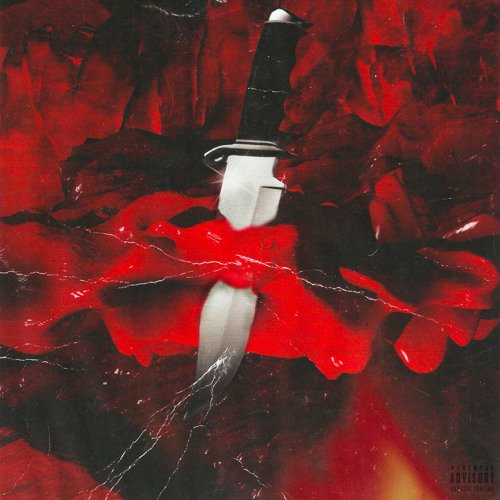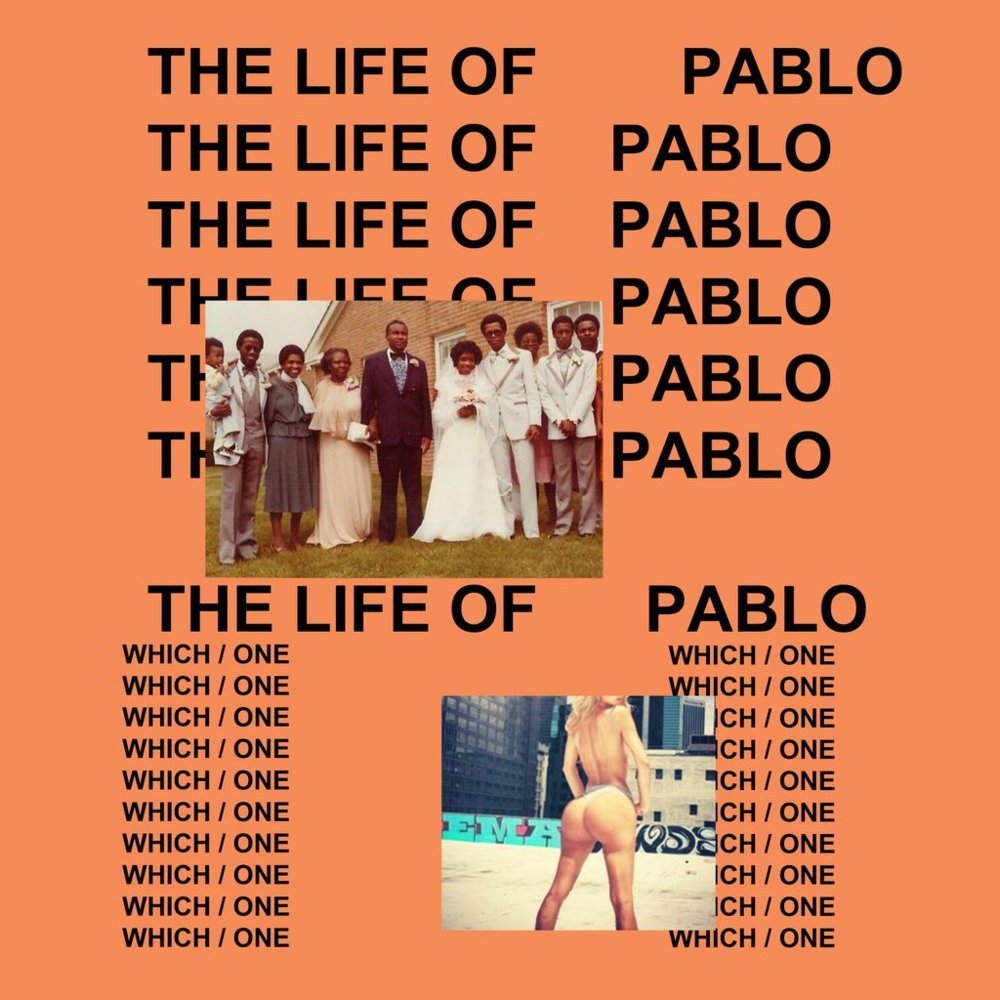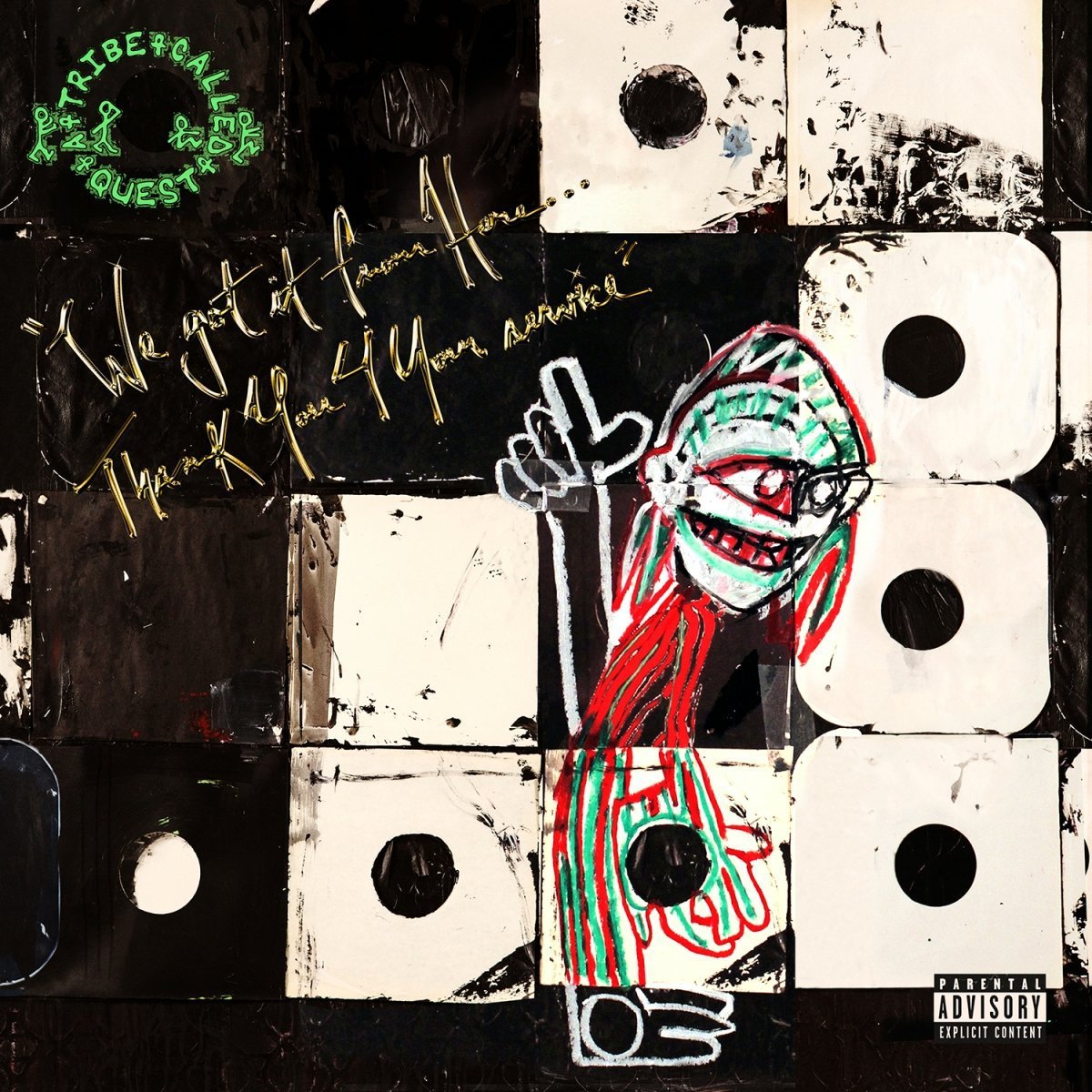Årets bästa rap 2016
Vår rapspaltist bryter ner de 60 bästa rap-händelserna som inträffade i år
Första dagen i månaden är vår månatliga rapkolumn, och istället för att sammanställa en lista över de 10 eller 20 bästa rapalbumen – eftersom genren inte är lika albumberoende som de andra genrerna vi har gjort Bästa 2016-listor för – räknar vår skribent ner låtarna, mixtaperna och albumen som definierade genren i år.
60. Jimmy Wopo: “Elm Street”
59. Conway: “Birdy”
Westside Gunn’s FLYGOD got most of the attention, but it was his Buffalo compatriot Conway who crafted the year’s best gas face.
58. Denzel Curry: “ULT”
From a distance, it looks like Denzel Curry is ahistorical, exterritorial. On closer inspection, he’s synthesizing Memphis, Queens, an earned high school swagger, his native Florida, Purrp’s YouTube favorites.

57. Aesop Rock: The Impossible Kid
56. The Outfit, TX: “Type Shit”

55. Lil Durk: 2X

54. J-Zone: Fish-N-Grits
“Time For a Crime Wave” is still one of the most incisive rap songs in recent memory, uproariously funny, but grave. J-Zone is an important voice because he serves critique from the fringes and exemplifies an alternative, often at the same time.
53. Jeremih ft. Young Thug, Chance the Rapper, & The Weeknd: “Pass Dat (Remix)”
52. Joey Purp: “Photobooth”
The Chance-featuring “Girls @” was the bigger hit, but “Photobooth” was the most confounding Joey Purp song of the year—and the best.

51. Kamaiyah: A Good Night in the Ghetto
50. Z: “Cloverleaf”
49. YFN Lucci ft. Migos & Trouble: “Key to the Streets”
48. Princess Nokia: “Tomboy”
There’s been a quiet renaissance in rap videos, but it doesn’t matter because I no longer set an alarm to wake up before my seventh-grade classes and watch the video roundups on three different networks.
47. Dwynell Roland ft. Finding Novyon: “Dude”
Both Dwynell Roland and Finding Novyon are poised to become critical favorites in the next twelve or twenty-four months; each marries the headiness the Twin Cities are known for with something more instinctive, more improvisational.

46. Kool Keith: Feature Magnetic
Feature Magnetic plays less like an album than a series of exercises, bound together by thread that Kool Keith repurposed from tattered Mets jerseys.

45. Noname: Telefone

44. Kodak Black: Lil Big Pac
43. Guante & Katrah-Quey: “White People on Twitter”
Taken from a record called POST-POST-RACE, “White People on Twitter” tackles the titular subject with Guante’s typical systematic lines of thought, which are marked by dry humor and a willingness to engage with nearly any topic earnestly and on its own terms.
42. Future: “Perkys Calling” / “Inside the Mattress”

41. Vic Spencer & Chris Crack: Who the Fuck Is Chris Spencer??
Two of Chicago’s most distinct voices—that’s speaking figuratively and very, very literally—come together for an LP that’s smart, mean, and endlessly fun.

40. G Herbo: Strictly 4 My Fans
39. Earl Sweatshirt: “Wind in My Sails”
Alchemist makes a case for Producer of the Year every single year.
38. CupcakKe: “LGBT”
37. J. Stalin, “100 Boxes”
36. Young Thug: No, My Name is Jeffery / I’m Up / Slime Season 3
Young Thug didn’t have a singular project this year, but he had a litany of great songs: “King Troup,” “For My People,” “With Them,” “Webbie,” “Kanye West,” “F Cancer,” et al.
35. DJ Fresh & Ezale: The Tonite Show
34. Mistah F.A.B f/ Boosie Badazz & IAMSU!: “Up Until Then”
Any interpolation of 400 Degreez gets bumped to the front of the line; the single from Mistah F.A.B.’s Son of a Pimp 2 transcends.

33. Scallops Hotel: Too Much of Life is Mood
Scallops Hotel is a project by Milo, the Milwaukee-based rapper whose reputation as a spoken word-leaning philosophy student too often undersells his superb, out-and-out rapping abilities. In truth, he embodies a half-dozen styles remarkably well; Too Much of Life is Mood is a hypnotic listen, marked by long instrumental stretches and vocals that sound as if they were written, recorded, and mixed right in front of you. Milo’s often been described in tandem with (or opposition to) his mentors, but he’s distinctly original.
32. Currensy f/ Lil Wayne: “Fat Albert”
This, along with turns on Solange’s “Mad,” Chance’s “No Problem,” Dae Dae’s “Spend It” remix and various other songs marked a quiet renaissance for Lil Wayne. And Currensy never sleeps.

30. 2 Chainz & Lil Wayne: Collegrove
The most fun you can legally have in 29 states.

29. Shy Glizzy: Young Jefe 2
Shy Glizzy seems to be on the precipice of either national stardom or permanent cult status; this record makes a strong argument that he’ll make remarkable music in either case, and with whatever resources.

28. Kendrick Lamar: untitled unmastered
27. Nipsey Hussle f/ Young Thug & Mozzy: “I Do This”

26. 21 Savage & Metro Boomin: Savage Mode
Depending on how many Jenner news apps you subscribe to, 21 Savage is on the verge of becoming a bona fide national star. And yet Savage Mode is, above all else, a master class in production and sound design. It’s frequently arresting, and yet it has long stretches that are more ambient than anything else. Metro Boomin’s elastic tempos are some of the best work he’s done to date.
25. Boosie Badazz: Various
Since coming home from prison, Boosie has been mind-numbingly prolific; this year alone he dropped five solo records and one album, Penitentiary Chances, with the still-incarcerated C-Murder. Boosie might be today’s closest analogue to 2Pac, both in style and substance, and each song he touches deserves your attention.

24. Payroll Giovanni & Cardo Got Wings: Big Bossin’ Vol. 1
Big Bossin Vol. 1 is designed to be played on stolen yachts.
23. Kevin Gates: “2 Phones”
Islah could have benefitted from more of the outright weirdness that marked Kevin Gates’s work over the half-dozen mixtapes that preceded it, but at its best his Atlantic debut distills his appeal into swelling, swaggering pop.
22. Dae Dae: “Wat U Mean”
A breakout single that you can play in Magic City or on the way from a wake.
21. P.O.S ft. Allan Kingdom, Hard_R, Lizzo, Lydia Liza, etc “Sleepdrone/Superposition”
Instead of chronicling his years-long battle with his “poisonous blood”—a struggle that culminated in a kidney transplant and a cancelled national tour—”Sleepdrone/Superposition” catches P.O.S staring at blank thank-you cards. It also features a stitched-together dream sequence of guest stars, including a few bars from his own son.
20. Cam & China: Cam & China
Cam and China, the Inglewood natives who used to be members of the Pink Dollaz, keep shedding qualifiers: where they were once the most promising teenaged twins in the jerk movement, they’re now two of L.A.’s best rappers, full stop.

19. Open Mike Eagle & Paul White: Hella Personal Film Festival
Dark Comedy, Open Mike Eagle’s masterpiece from 2014, dealt with the way person-to-person interactions are complicated by technology and institution. Hella Personal Film Festival, his full-length collaboration with producer Paul White, lives mostly in the brain’s grey matter. “Smiling (Quirky Race Doc)” and the Aesop Rock-assisted “I Went Outside Today” are towering achievements.

18. Danny Brown: Atrocity Exhibition
After a three-album crescendo into critical stardom, Danny Brown’s new record is remarkable for its restraint. The Detroit native is as engaging as ever, but he knows when to get out of the way—of the psych-rock influences, the dance interpolations, the hangover from his more wizened verses.

17. Kanye West: The Life of Pablo
The Life of Pablo feels unfinished—sometimes it’s by design, sometimes it’s (probably) not. The notion that this chaos is central to the record’s themes is probably a projection; what’s undeniable is that West’s genius burns so bright, it can cut through clutter and half-formed ideas to imprint itself on the music-listening world.
16. Nocando: “El Camino”
One of the greatest battle rappers to ever live is now writing songs that are furious, but tightly wound and carefully finished.

15. Vince Staples: Prima Donna
Vince Staples is too cagey to make a record that discusses fame in explicit terms for any length of time. Nonetheless, Prima Donna is a meditation on the subject, complete with some of the year’s densest writing. The title track in particular is a jarring look into Vince’s psyche.

14. Isaiah Rashad: The Sun’s Tirade
The Chattanooga, Tenn.-bred Isaiah Rashad made the year’s most subtle blockbuster, a slow burn that builds to one jarring, satisfying left turn on the B-side.

13. 2 Chainz: Daniel Son, Necklace Don
When 2 Chainz drops a new record, seized by this strange anxiety: that some day, that well of imagery—rims on ambulances, pajamas at Ruth’s Chris—is going to dry up. So far, it hasn’t. Moreover, the former Tity Boi keeps finding ways to take his colorful, fun material and merge it with his weightier, autobiographical writing.
12. Rae Sremmurd ft. Gucci Mane: “Black Beatles”
You rarely come across a chorus this perfect. Jxmmi’s defiance and Gucci’s very presence help round out the song, but “Black Beatles” is a Swae Lee joint through and through. That “know me” is going to live forever.

11. French Montana: Wave Gods
After years of playing catch-up and collaborative records circling an idea that suited him solo, French Montana finally constructed his perfect plane of reality, then wrung it for all its pathos.
10. Freddie Gibbs: “Money, Cash, Hoes” / “Cocaine Parties in L.A.”
You can’t find the full version of “Cocaine Parties in L.A.” online anymore. Knock on the doorframe three times and go around back.

9. Dreezy: No Hard Feelings
For all her dizzying, diverse talents, the most surprising thing about Dreezy’s No Hard Feelings is that it’s so funny. Her Jeremih-featuring single is followed by a skit where a drunk boyfriend complains into her voicemail about Jeremih’s body language in the video. All told, she’s one of Chicago’s most talented rappers, but could break through soon with an unabashed pop hit.

8. G Perico: Shit Don’t Stop
G Perico studied the masters and built something new. Shit Don’t Stop is the kind of tape you can play to heighten nearly any mood.

7. A Tribe Called Quest: We Got It From Here… Thank You 4 Your Service
“We the People” will be a rallying cry for the foreseeable future, but it’s “The Space Program” that best encapsulates the Tribe ethos: a cutting message in a breezy vessel.

6. Ka: Honor Killed the Samurai
The week *Honor Killed the Samurai *came out, the New York Post—a publication best used for starting small fires or stuffing wet running shoes—ran a fumbling, racist smear piece, the aim of which was to get Ka fired from his job as a fire captain. The world doesn’t deserve Ka, one of this generation’s most brilliant artists.
5. “Travis Scott” & Young Thug ft. Quavo: “Pick Up the Phone”
*“Mama told me I’m her brightest star Mama told me, ‘Don’t hate on the law Because everybody got a job Because everybody wanna be a star’;
I thought I was right— Then I had to man up: I was wrong”*
4. RJ: “Flex”
All rap is political.

3. Elucid: Save Yourself
Think of the trite Lennon screenshots that float through your Instagram feed: “Life is what happens when you’re busy making other plans.” Think of all those fawning Veep reviews about how the show’s humor comes in the crevices of the actual plotlines. Remember, if you can, the entire social dramedies that played out for you in the four-and-a-half minutes after the bell rang but before the next class began. Elucid’s Save Yourself blows tiny, transitional moments up into Technicolor experiences: “Obama Incense” feels like one long aside, “No Grand Agenda” sounds for all the world like a two-bar loop inflated to fill the entire room. He’s a knotty, brilliant writer (you could write three screenplays based on “No Such Thing” alone), and he’s making use of glitchy, delightfully off-kilter production. Save Yourself is a record by someone who has the keys, but isn’t willing to hand them over just like that—and it’s more fun this way.
2. Migos ft. Young Thug: “Cocoon (Remix)”
The short of it is that the “Cocoon” remix is the spiritual successor to Wayne’s “I Feel Like Dying.” Longer: Quavo’s hook is what happens when you live through all the experimentation, all the W. Bush years, and come out feeling invincible. Young Thug’s verse—maybe his best of 2016, a banner year for Young Thug verses—is alternately assured and pleading. At the tail end of his turn, Offset raps: “This for the people that’s taking drugs every day/ Fuck what they say, let the pain go away.” “Cocoon” sounds like you became lucid halfway through a nightmare, and instead of shaking yourself awake, you opted to stick around and see what bottle service feels like.

1. YG: Still Brazy
I profiled YG this summer. Our first interview was scheduled right after the Secret Service had reached out to Universal about “FDT”; I was there, months later, when that song soundtracked marches and freeway closures and effigy burnings all over Los Angeles. I remember nightly news reports about his meetings with the mayor of Compton. I’ve heard “Police Get Away Wit Murder” pulsating through my block late at night. A friend of mine whose uncle was arrested and deported after years working as a day laborer told me “Black and Browns” brought her to tears. And yet for all the record’s overtly political fury, Still Brazy is primarily a triumph in form. “Twist My Fingaz” is a neo-G Funk masterstroke, but the title track is distilled claustrophobia. There are pieces of East Oakland, of Quik’s reddest demos, of Snoop and Spice-1 and even Suga Free. A decade from now, it’ll be held as a classic, but it’ll also be a starting point for kids interested in California rap to start digging back through the archives.
Paul Thompson is a Canadian writer and critic who lives in Los Angeles. His work has appeared in GQ, Rolling Stone, New York Magazine and Playboy, among other outlets.
Gå med i klubben!
Gå med nu, från 44 $Exclusive 15% Off for Teachers, Students, Military members, Healthcare professionals & First Responders - Get Verified!




